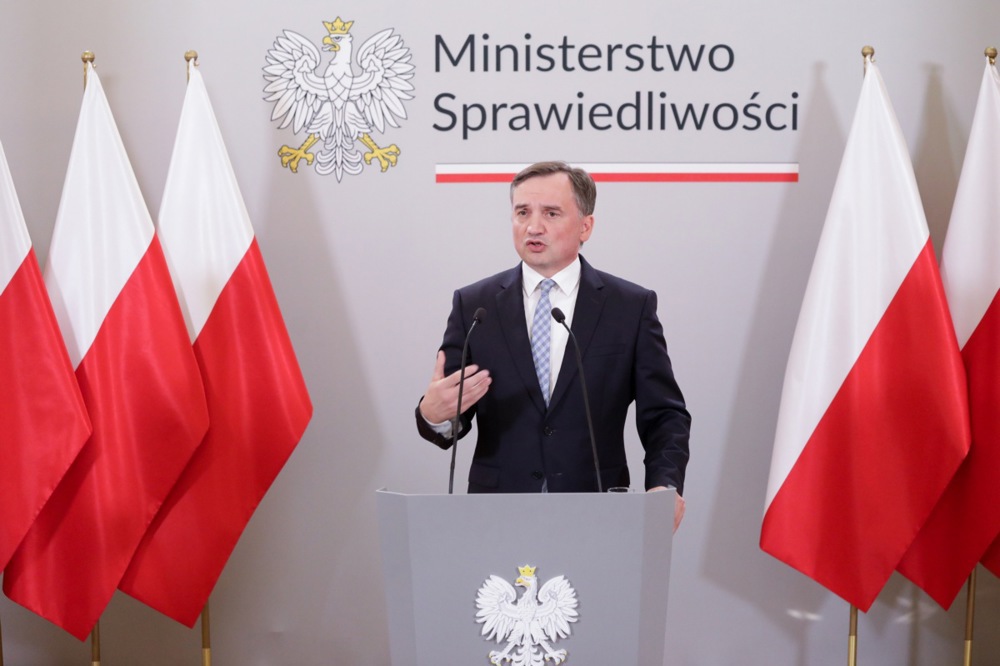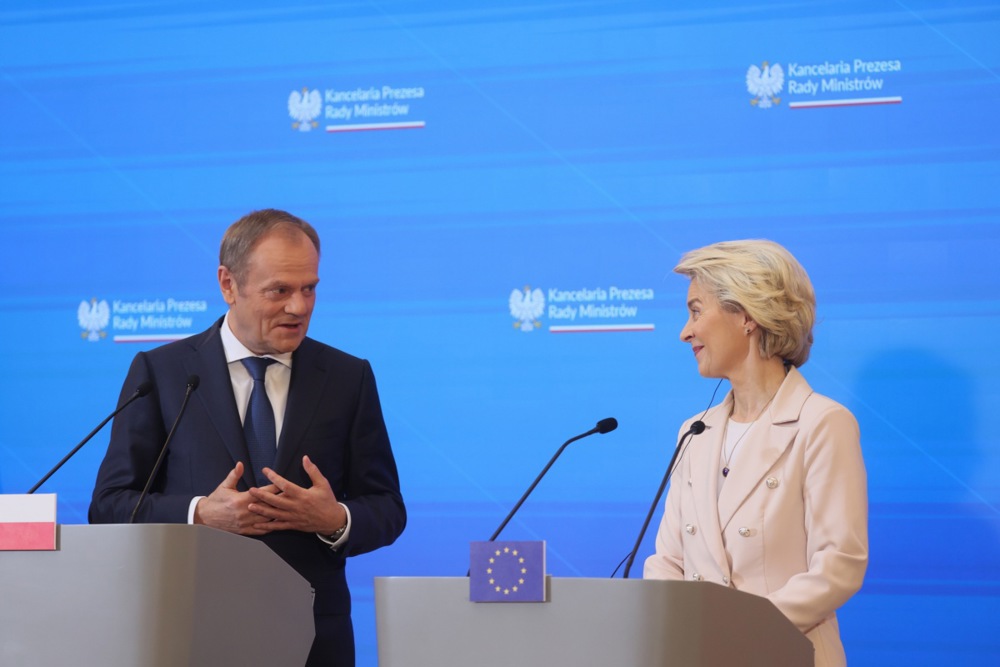An exit poll carried by Poland’s three main television networks showed Prime Minister Donald Tusk’s Civic Coalition (KO) ahead of the former ruling Conservative (PiS) in the battle to elect MEPs.
On June 9, Tusk’s KO was projected to have received 38.2 per cent with PiS on 33.9 per cent in the Eueopean Parliament ballot.
That will be seen as a boost by Tusk and the KO, part of the European People’s Party (EPP) group in the EP, as it would be the first time in 10 years in 10 such elections that his party has topped the PiS. The KO is projected to have won 21 seats.
A delighted Tusk claimed his party’s predicted win was “the best result secured by any democratic party in the European elections” and that Poland was a “beacon of hope in Europe”.
The former ruling PiS, part of the European Conservatives and Reformists (ECR) group in the EP, will likely be disappointed with having lost pole position among Polish voters. Based on the exit poll figures, it is expected to win 19 seats, down from the 27 it won in the 2019 vote.
The right-wing Confederation Party polled in double digits for the first time – according to the exit poll it has secured 11.9 per cent. Having failed to cross the electoral threshold back in 2019, the party is now projected to win six seats in the new EP in which it is likely to sit in the Identity and Democracy hard-right group.
Tusk’s coalition partners the Third Way alliance polled below expectations, with 8.2 per cent, well down from the 14.4 per cent it secured in Poland’s 2023 parliamentary election and 13.5 per cent in the local government elections in April. Given the projections, the party will only have four seats in the new EP.
The Left party, which is part of the Progressive Alliance of Socialists and Democrats (S&D) group in the EP, polled poorly again gaining only 6,6 per cent – down from its 8.6 per cent in the general election. If the exit polls are confirmed it would have just three MEPs in the new European Parliament.
The turnout in the EP elections in Poland was projected to have been 39.7 per cent, well down from the 45.7 per cent in 2019 as it seemed Poles have become wearied after eight months in which they went to the ballot box three times.





